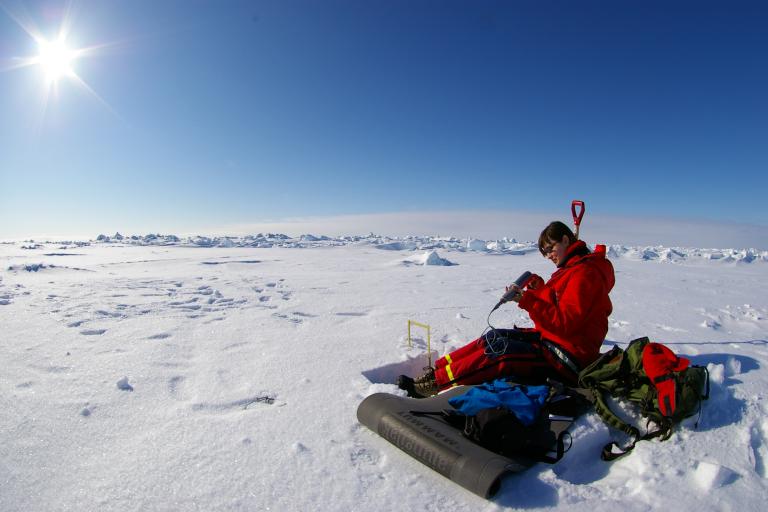WMO community celebrates International Women’s Day
WMO joins the international community in celebrating International Women’s Day on 8 March with reinvigorated commitment to promote gender equality in the workplace, expand gender-sensitive weather and climate services and to unlock the power of women as champions of climate action and resilience.

This year’s theme is Invest in women: Accelerate progress. Global crises, including soaring poverty levels and the escalating impacts of climate change, can only be addressed by solutions that empower women and so speed the transition towards a safer and more equal world for all.
“Gender equality is both a moral and strategic imperative. It underpins sustainable development,” said Celeste Saulo, WMO’s first female Secretary-General, who was recently named an International Gender Champion.
In a special breakfast event at Geneva headquarters, Celeste Saulo reaffirmed her priority to foster greater diversity within and outside the WMO, ensuring equitable representation across gender, regional, and cultural lines to embrace equality and dignity as core values.
She said she will seek to mainstream gender equality across all aspects of WMO’s work.
- Integrate gender considerations into all policies, programs, and activities of the WMO, ensuring that gender equality is a central focus.
- Advocate for increased representation of women in leadership positions within WMO and its constituent bodies, fostering an inclusive and diverse organizational culture.
Celeste Saulo was due to take part in a UN Senior Women Leaders retreat on 9 March convened by UN Deputy Secretary-General Amina Mohammed to brainstorm on the challenges and opportunities facing global society.
Women’s leadership in disaster risk reduction
WMO’s Services Commission, currently meeting in Bali, Indonesia, held a dedicated Gender Action Day, with discussions and interactive learning and coaching sessions. It was an opportunity for WMO Members and partners to collaborate and jointly advance women’s leadership in disaster and climate risk reduction.
SERCOM members took decisions on the next steps to mainstream gender-responsive and inclusive multi-hazard early warning systems through the Early Warnings for All initiative, and weather, climate, hydrological and marine services.
“Women play a pivotal role in weather and climate-related sectors, yet they often face systemic barriers to full participation and leadership. By breaking down barriers, we unlock their immense potential to building resilient societies,” Celeste Saulo said in a video message to the event.
For instance, they have less access to climate information, agricultural advisory services, mobile phone technology and financial credits.
Women are disproportionately affected by weather and climate hazards. But they are very effective at mobilizing communities in the event of disasters and are at the frontline of recovery. Women hold knowledge in natural resources and water management. They can be key actors in climate adaptation and mitigation.
This is why many WMO activities now seek to redress the balance through gender-specific services or training programmes. Examples include aeronautical and agricultural meteorology; marine and hydrological services; drought and flood management – including the Flash Flood Guidance System.
Gender mainstreaming is an important requirement for donors. For example, some of the projects funded by the Climate Risk and Early Warning Systems initiative seek to increase access by women and vulnerable communities to hydrometeorological information in LDCs and SIDS. Capacity development programmes likewise factor in gender.

Gender Balance at WMO
At WMO, there has been progress in recent years. Women’s leadership roles in WMO constituent bodies increased from 31% prior to the reform in 2019 to 39% in 2021. Women’s participation in technical commissions subsidiary bodies also rose. In SERCOM and the Research Board, it met or exceeded the minimum target of 40% set by the World Meteorological Congress.
But other technical commissions fall below the target and there has been hardly any change in the participation of women in Executive Council sessions.

